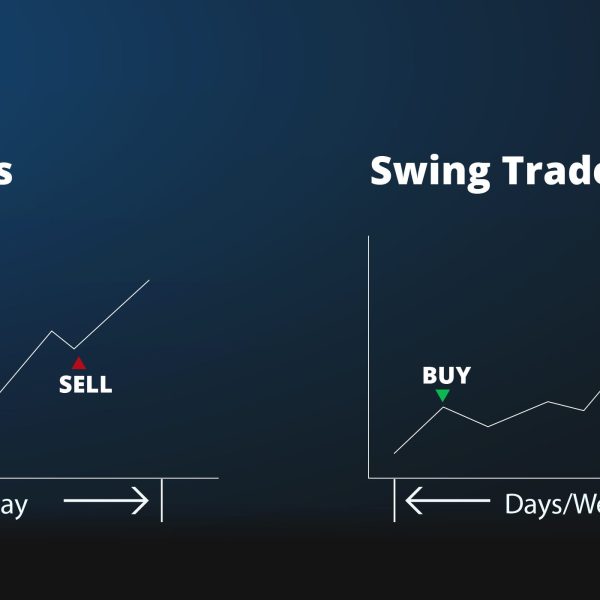The concept of cryptocurrency is quite intriguing. Existing and new investors alike have various queries regarding the principles of blockchain technology and virtual currency. Because they are a safe investment that is unbiased by politics, cryptocurrencies are increasingly regarded as “digital gold.”
Considering the market’s volatility, the shifting legal and regulatory environment, and the high volatility of crypto assets, it could be difficult to pinpoint the market or even understand the strategic purpose of incorporating crypto into a firm.
A number of tales of crypto rags to riches have been around. So in this blog, we’ve compiled a list of the most often asked questions — from investment strategy to whether is crypto taxed. Let’s get started!
Can You Become a Millionaire With Crypto?
- Is it still worth making an investment given the falling price of cryptocurrencies?
Cryptocurrencies are still in their infancy as a market since they have yet to identify their own set of rational use cases. The industry’s high volatility is a byproduct of its newness, and it is mostly caused by investors’ increased experimentation to better understand how cryptocurrency prices change or why bitcoin fluctuates so much.
For instance, the price of Ethereum has increased by around 800% during the last three years. Shiba Inu has soared by an astounding 23,600,000% from its lowest point in 2020, whereas Solana has increased by far more than 3,600% since its inception.
It might be tempting to consider how much you might have made had you invested in the early years of these coins. However, cryptocurrency values have been falling since the end of last year, and several investors may be unsure whether it is really profitable to invest.

- Which is the Best Investment Strategy?
Along with maintaining a long-term perspective, it’s critical to make good investing decisions. When the whole crypto market is in a downturn, it’s natural to be apprehensive about the future. But if you have the correct approach, investing in cryptocurrencies may still help you build wealth.
The fact that Bitcoin and Ethereum are the most well-known and commonly utilized cryptocurrencies makes them relatively safer alternatives. Shiba Inu and Dogecoin, on the other hand, involve higher risk.
Thus, you must remember that only risk-accepting amounts of money should be invested in cryptocurrencies. But before you get started, make sure you are completely aware of the pitfalls involved.
- Why Will Crypto be Relevant in the Long-Term?
Any long-term investment is usually based on the idea that you should invest money and either earn interest on it or sell it when the value increases. And the cryptocurrency market is the same.
Time is an investor’s greatest bet, which is how most traders approach trading. The gains increase as hodling time increases.
Given the volatility of the crypto market, there are periodic short-term fluctuations. But holding onto what you currently have has traditionally been the best strategy for success with cryptocurrencies.
- Can You Become a Millionaire With Crypto?
Even if the crypto market as a whole has been in distress lately, you may still make a tonne of money with time. While there are no assurances that you’ll become the next example of the rags-to-riches tale, it is still possible to generate sizable returns if you invest wisely and hang onto your money for a long time.
In this context, it must be noted that in order to invest in cryptocurrency you must be aware of all aspects of it — the concept of blockchain technology, how is cryptocurrency taxed, what are the regulations of cryptocurrency taxes, and how you can calculate your taxes and how to file them.
- How is Cryptocurrency Taxed?
Now coming to the last, but the most important question of all: how is cryptocurrency taxed?
Cryptocurrencies are treated as assets by the IRS, so when they are exchanged for cash or used as payment, there are tax consequences. When you sell, trade, or use a cryptocurrency that has increased in value, you must pay taxes on any profit you make.
In general, you would experience a capital gain of $500 if you bought $200 worth of Ethereum and sold it for $700. You would have a capital loss if your Ethereum decreased in value during that period. You are permitted to deduct up to $3,000 from your taxable income if your losses outweigh your gains.
The Bottom Line
Investing in cryptocurrency may be quite difficult keeping in mind how cryptocurrency is taxed. Additionally, the IRS is increasing enforcement and oversight of possible tax avoidance by closely monitoring who is exchanging cryptocurrency. All of these elements contribute to making cryptocurrencies more challenging to use and are likely to impede their further adoption.
FAQs
- How can I avoid paying taxes on crypto?
The only way to legally avoid paying taxes on your cryptocurrency is to not use it. If the value of your cryptocurrency increases, you will ultimately have to pay taxes at the time of trading, using, converting to fiat, or swapping.
- Is cryptocurrency taxed?
Yes, cryptocurrency is taxed in the USA. According to the IRS, all transactions that include the exchange of cryptocurrencies for goods or services are considered to be exchanges of cryptocurrencies for products or services. If the value of these assets rises over their original purchase price, the taxpayer must pay capital gains tax.
- Do I pay taxes on crypto if I don’t sell?
Taxes are only due when you receive money from a transaction, transfer, or exchange involving cryptocurrency or other virtual digital assets. Owning crypto assets is tax-free.











